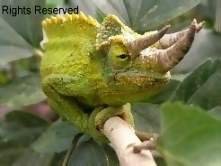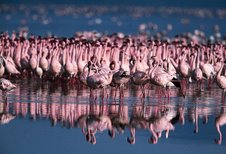Tanzania was formed by the political union between mainland
Tanganyika and the offshore islands of Zanzibar and Pemba. The two parts
of the union attained independence separately, the mainland
(Tanganyika) in 1961 and Zanzibar in 1963 and a year later formed a
union under the new name of Tanzania. The coastal area was the subject
of great maritime rivalry first between the Portuguese and Arab traders
and later between various European powers. Zanzibar was well known for
slaves and spice exportation.
In 1964, the Sultan was stopped in a communist inspired revolution
and the majority of the Arab population were massacred and expelled.
Later, the Sultan was replaced by Afro Shirazi party. It was during the
reign of this party that Zanzibar and Pemba were merged with Tanganyika
to form Tanzania. European explorers began arriving in the middle of the
19th century, two of the most famous being Livingstone and
Stanley. In 1891 the German colonized the mainland and it was governed
directly by the German government.
Meanwhile, Julius Nyerere found the Tanganyika African National
Union, which envisioned villages becoming socialist organization created
and governed by the local people. The economy was nationalized and
taxed were increased. Nyerere banned government ministers and party
officials from having shares or directorships in companies or from
receiving more than one salary an attempt to prevent leaders from
developing into an exploitative class. In 1985, Nyerere stepped down as
president to lead his party (CHAMA CHA MAPINDUZI –PARTY OF THE
REVOLUTION) Ali Hassan Mwinyi was elected and later Benjamin Mkapa
preceded him. Jakaya Kikwete is the most recent president of Tanzania
and the 4th president since the independent.
Unlike most of African countries, Tanzania’s population is not
dominated by any one particular people from among 120 tribes occupying
the country. The widespread tribe, the widespread is of Bantu origin.
The wa-sukuma tribe is the largest. Other large tribes include wa-haya,
wa-chaga, WA-nyamwezi, Wa- gogo, wa- hehe, Wa-ngoni, Wa-nyakyusia and
the wa- Maasai who are dispersed across the northern plain and beyond
into Kenya.
Tanzania is a home to many tourist attractions stretching from from
wildlife to prehistoric times which has led archaeologists to regard the
country as the cradle of mankind. The most important among others is
Olduvai Gorge where Homo habilis, believed to be the ancestor of modern
man was unearthed. The most and best tourism attractions in Tanzania are
located in Northern of the country and includes world famous Serengeti
National park which has spectacular seasonal migration of wildebeest.
Mount Kilimanjaro which is Africans highest mountain. Ngorongoro reserve
which has an extinct volcanic caldera. Tourism also stretches to the
coast especially in Zanzibar and Pemba Island with beautiful beaches
and, sport fishing and diving.
PKP- Kenia safaris desk
Subscribe to:
Post Comments (Atom)









No comments:
Post a Comment